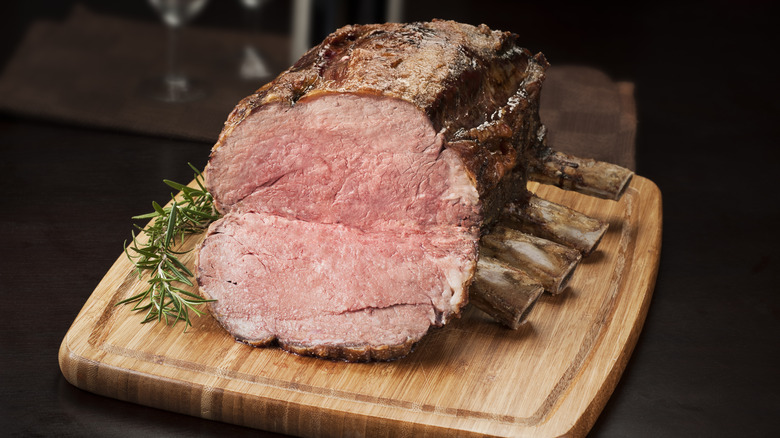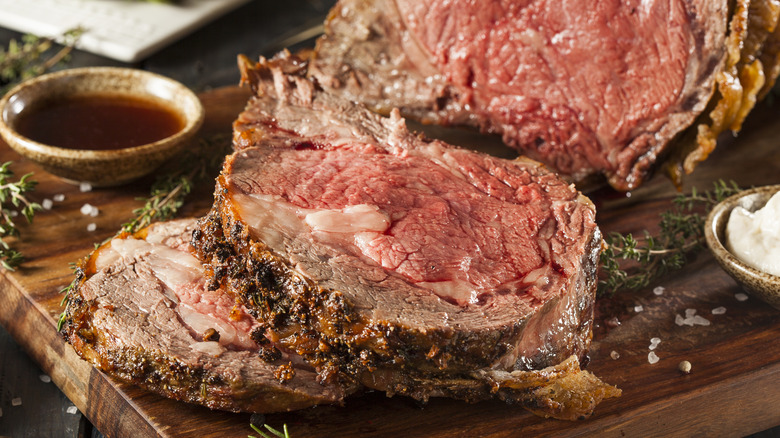For The Juiciest Prime Rib, Avoid Poking It With A Thermometer
The key to perfectly medium-rare prime rib is the rest after the roast. Slicing it too soon is one of the worst mistakes you can make with prime rib, letting all the delicious juices run out of the meat and onto your cutting board and leaving your roast dry. A juicy prime rib needs to be cooked to 135 F and cooled to 120 F before slicing to give the cells time to reabsorb the liquid, locking it into the meat. Popular guidance recommends letting your prime rib rest for 30 minutes before slicing and serving, but this may be too little time for a larger roast and too much for a smaller one to reach the threshold temperature.
When it comes to prime rib, perfect timing requires precision temperature monitoring, but if you're constantly poking your roast with an old-school analog or instant-read meat thermometer, you may be wrecking the rest. The high internal heat puts pressure on the water inside, so repeated poking both in the oven and at rest may squeeze all the juices out almost as badly as premature slicing, defeating the purpose of the rest altogether.
Set it and forget it
Instead of treating your prime rib like a pincushion, use a programmable digital probe thermometer and leave it in the deepest part of the meat throughout the roasting and resting process so you only have to poke it once. Program it to alarm when the meat reaches 135 F, take it out when it beeps, and then let it rest until the readout shows 120 F. Some models let you set a temperature range, but others only alarm when it gets above a set temp, so you may have to watch the readout, but that's still better than poking it a million times.
Even better yet is the foolproof "closed oven method," which produces a perfect prime rib (and reverse-seared ribeye) every time with just a bit of math. Start with the weight of your roast in pounds and multiply it by five to get the exact number of minutes to roast it at 500 F — 35 minutes for a 7-pound roast, 80 for a 16-pounder, etc. After that, turn off your oven, but don't open it! Leave it off and the door closed for two more hours. Yes, the smell is going to drive you bonkers while you wait, but it's worth it. When time's up, pull your prime rib and slice it immediately. There's no need to rest it, and it will be perfectly medium-rare without any poking, but you can leave a digital probe in anyway if you're nervous.

